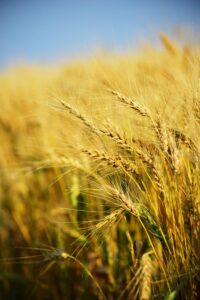The 2025 World Food Day theme, “Hand in Hand for Better Foods and a Better Future,” aligns closely with South Africa’s ongoing efforts to address childhood malnutrition through collaboration between government, industry, and communities.
The National School Nutrition Programme (NSNP), operated by the Department of Basic Education, provides daily meals to millions of learners in under-resourced schools. For many children, it remains their only meal of the day, making nutritional quality a key concern as food prices rise and budgets remain constrained.
To explore cost-effective options that maintain nutritional standards, Potatoes SA conducted a proof-of-concept trial examining the role of potatoes in school meals. The pilot was carried out in five Gauteng schools — Moses Kotane Primary (Soweto), Dulcie September Primary (Rabie Ridge), Kgabo Primary (Atteridgeville), Banareng Primary (Saulsville), and Morakoma Primary (Mamelodi West).
According to feedback from the trial, learners who consumed meals containing potatoes reported feeling fuller for longer and showed higher concentration levels after lunch. Teachers observed fewer energy slumps and improved focus in the classroom. Attendance during meal collection also reportedly increased when potatoes were served.
Kitchen staff noted that potatoes were easy to prepare using existing equipment and required less cooking time than other starches, reducing energy use.
Dr. Carmen Muller, a nutritionist at the University of Pretoria, said the findings align with existing research on the nutritional value of potatoes. “They offer vitamins, minerals, and high-quality, easily absorbed protein, which can help combat micronutrient deficiencies and support healthy cognitive development,” she said.
The trial also indicated that potatoes could function as a meal extender, helping kitchens stretch limited resources while diversifying menus with a food children enjoy but seldom eat at home.
Potatoes are not yet part of the official NSNP menu, which currently includes maize meal, rice, and samp as staple starches. Potatoes SA said the trial was intended to support dialogue between the agriculture sector and government on improving nutritional diversity through local produce.
The organisation highlighted the potential for partnerships between the Department of Basic Education and commodity groups to strengthen school feeding efforts. Broader inclusion of locally grown, nutrient-dense foods could help reduce malnutrition and improve learning outcomes across the region.
This article first appeared in Fresh Plaza. Read it here.
Photo: Pixabay on Pexels



